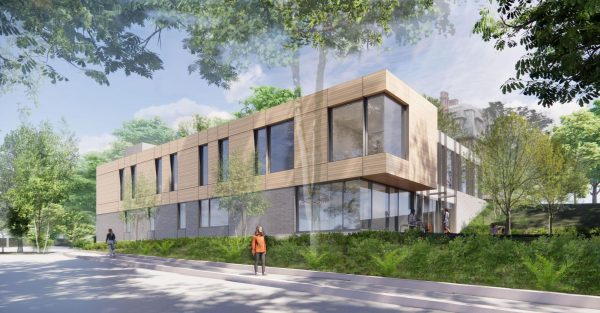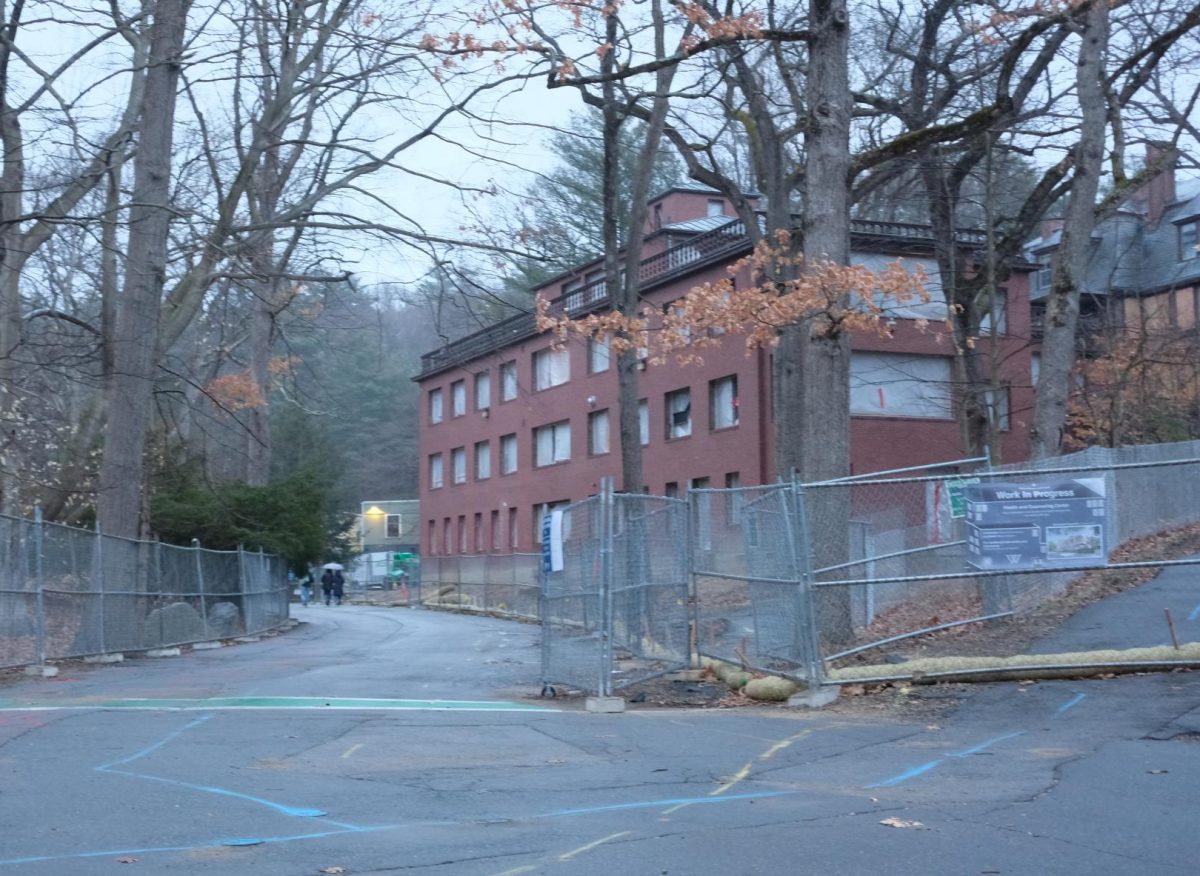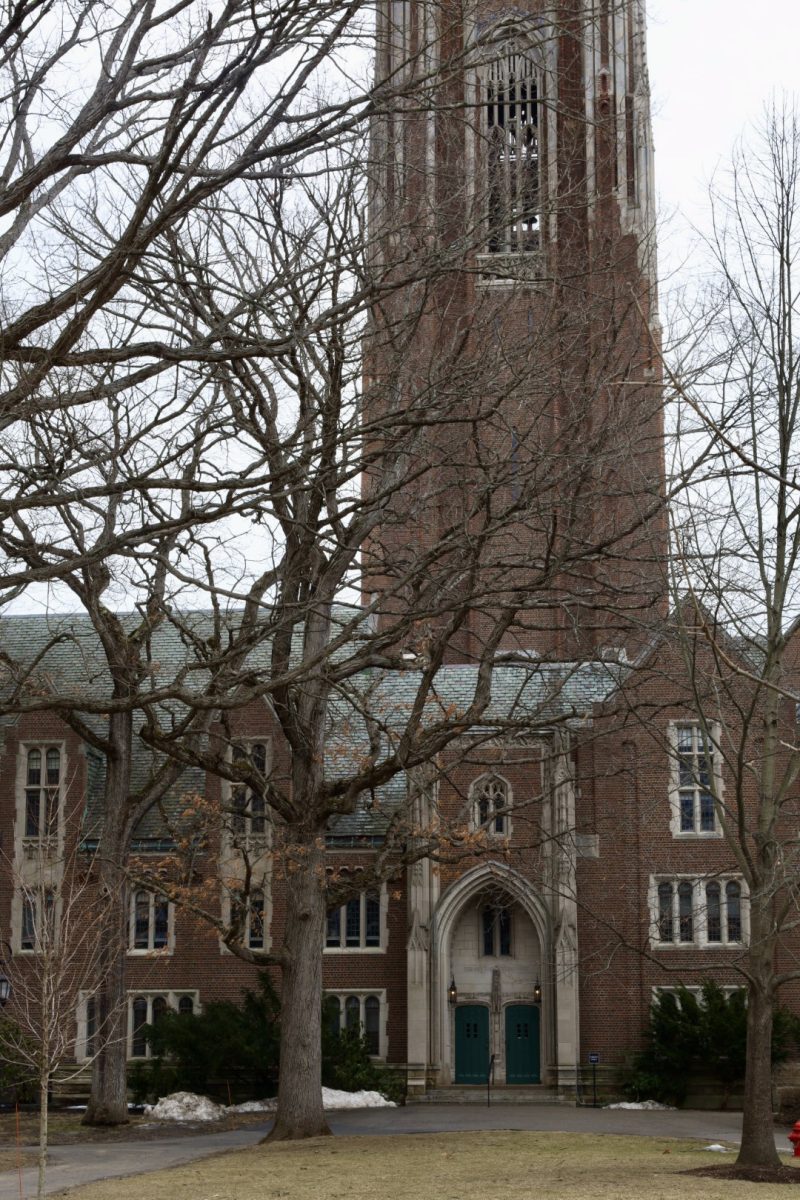The College began constructing Wellesley’s Health and Counseling Center in December 2023. The renovated building will house both Health Services and Counseling Services as the first adaptation on campus of holistic wellness when it is complete in spring 2025.
Simpson Hall, an addition to Simpson Cottage from 1942, has been removed and replaced with an ongoing construction that will be the new Health and Counseling Center. Simpson Cottage, in which the Stone Center Counseling Services was formerly located, plans to house the Wellesley Centers for Women after the renovations. Health Services and Counseling Services are currently relocated to the College Club until completion of construction.
The new Health and Counseling Center, 12,000 sq ft of space and with a budget of $13 million, will allocate the first floor to Health Services with six exam rooms and medical offices and the second floor to Counseling, with 13 counseling rooms.

The renovations aim to make mental health support more accessible to students. The Stone Center Counseling Service and Health Services were located in different buildings prior to the renovations, which limited simultaneous support.
Alvin Hung, assistant director of Design and project manager of the Health Services renovations, expressed that the separation of Counseling and Health Services led to “fragmented service.” Students were sent back and forth between the two to receive healthcare.
“We were really not providing the best services to our students,” he said.
He emphasized that a major goal of the renovations is to provide the first holistic care model for healthcare at Wellesley. Combining the centers is intended to reduce stigma toward mental health by associating mental health with physical health and provide smoother service. According to Hung, the team had studied several options for renovation — such as minor updates to Simpson Hall — but ultimately decided that such procedures would lack their target comprehensive healthcare model.
Another anticipated benefit of the renovation is improved patient care, including a more standardized patient experience. Students shared their mixed experiences with counselors and comfortability of the rooms with the Stone Center Counseling Service, commenting on the dated facilities of Simpson Hall.
Emily Castro ’26 conveyed that many students, herself included, have not been able to receive consistent support from Counseling Services since renovations began, as it has been understaffed and under-supported. This past year, Castro has visited Counseling at the College Club but found its location inconvenient. She has also had virtual appointments but expressed difficulties in finding private locations on campus to engage in them; she is hopeful about the private therapy rooms the new building will provide.
Hung noted that the new Health and Counseling Center will enjoy brighter, uniform rooms, as well as higher indoor air quality.
Sustainability in renovations
The renovations faced several challenges that have led to delays. While initially expected to be completed by August 2024, the projected completion date has been pushed to spring 2025 largely due to the College’s sustainability efforts.
The Health and Counseling Center will be the first fully electric building on campus — building, heating and cooling — and will meet the latest Massachusetts’ energy efficiency regulations for new buildings.
Hung emphasized the College’s commitment to sustainability in the building process, since the new building will retain the concrete foundation of Simpson Hall, which was found in mint condition during the planning phase of the renovations.
Although this is a “very risky” and “uncommon” approach, reusing the base will significantly reduce the project’s carbon footprint because concrete and steel account for 50-70% of a building project’s total embodied carbon. According to Hung, the College is willing to employ this more sustainable method of building despite its inherent drawbacks, one of which being the delay.
“We realized that if we were to remove the entire building, the amount of embodied carbon we’re going to generate with the new building doesn’t align with the values of the campus,” Hung said.
The preservation required careful dismantling of Simpson Hall to avoid damaging the foundation and safe handling of hazardous materials lingering from the 40s when it was built.
“It’s a very tricky approach, but we opted for the tough path … in order to substantially reduce the embodied carbon,” Hung said.
The Health and Counseling Center intends to be LEED (Leadership in Energy and Environmental Design) Gold certified. This entails the submission of an embodied carbon study that is currently being conducted. According to the U.S. Green Building Council’s LEED rating system page, a gold certification requires 60-79 points accumulated in categories including lower carbon emissions, lower energy and water consumption, reduced waste and use of green materials.
The project incorporates other sustainable features: a timber frame made from New-England-sourced panels instead of a steel frame and a prefabricated superstructure rather than the traditional stick-built approach, which generates greater amounts of waste.
After the Health and Counseling Center is finished, the College will begin touch-ups to Simpson Cottage for the Wellesley Centers for Women.
Contact the editor responsible for this story: Sazma Sarwar




